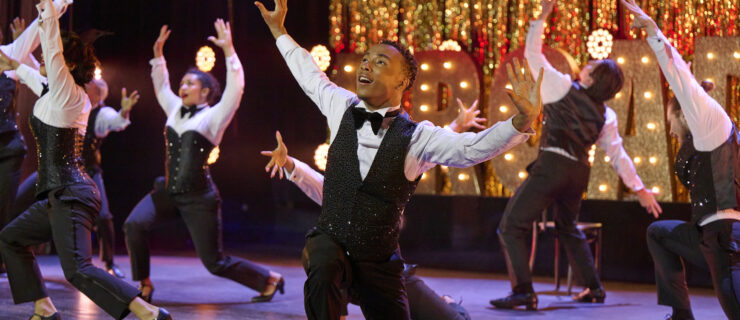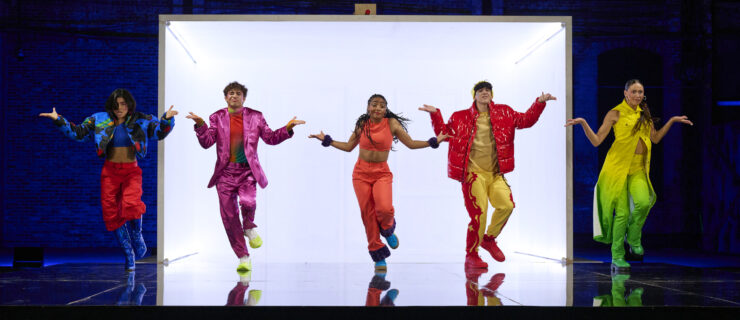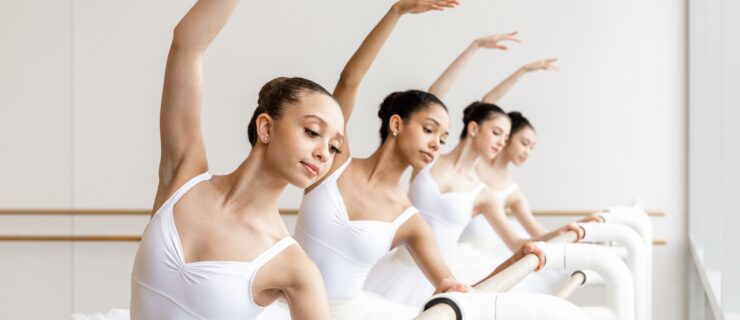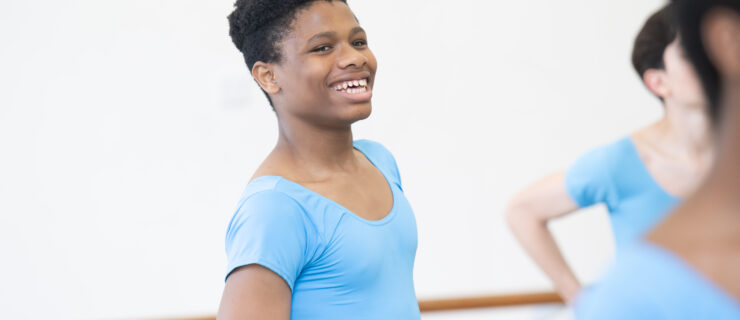Put Your Best Look Forward
How much difference can a new hairdo make? Just ask The Beat Freaks member Alex Welch, aka BGirl Shorty. “When I did ‘America’s Best Dance Crew’ with The Beat Freaks, I had normal-looking brunette hair,” she says. “But one day, the other girls took me to a salon and said, ‘You have all this personality when you’re performing—the way you look needs to match it.’ I didn’t know what the hairstylist was going to do to me. I came out with orange hair! But thanks to my new look, lots of people in the industry started to recognize me. It was like I’d finally found myself.”
Why did Welch’s hair color make such a big difference to her career? Because physical appearance can be a huge factor when it comes to booking your next gig. According to McDonald/Selznick Associates agent Shelli Margheritis, “There are a lot of dancers vying for many different positions, so having a distinctive look can help you be recognized by casting directors.” Wondering if it’s time to make some changes of your own? Here’s how to figure out if your current look is right for you—and how to fix it if it’s not.
When Keenan Kampa cut her hair super short, she was warned that it looked “unprofessional.” (Photo by Gene Schiavone)
A Brand-New You?
Maybe you’re going through a slow period in your dance life and are wondering if tweaking your appearance could shake things up for the better. Or maybe you just don’t feel like yourself anymore. “If you’re not projecting your best you, everyone will feel that when you walk into a show or an audition,” Welch says. “You could be one of the most talented people in the world, but if you don’t present yourself the right way, it’ll be harder to find work.”
That said, don’t run out and get five new piercings immediately. “If you’re thinking of altering your look, I would recommend sitting down with your agent and discussing the process instead of doing something hasty,” Margheritis says. “Remember that making a change means getting new headshots and dance photos, too”—so it’s not a decision to be made too lightly.
If you don’t have an agent, “think about your age, your particular vibe and who you are,” Margheritis advises. You don’t want to adopt an out-there look just to get attention; you want a style that reflects your personality. For some dancers, like Welch, that “true self” is a dramatically different-looking person—and big transformations can feel liberating. But if you’re unsure about what changes you want to make, take small steps. Considering pink hair, for example? Try going blonde first, or adding a few pink streaks to your regular hair color, and then reevaluate.
Don’t Make Me Over
Sometimes you’ll find that while you love the new you, the dance world thinks otherwise, which can be difficult to take. A few years ago, ballet dancer Keenan Kampa traded in her long hair for a short cut. “It was easy to manage, and I loved feeling like I was rebelling against the ‘bunhead’ stereotype,” she says. “When I joined Boston Ballet soon afterward, however, I was warned that my short hair looked ‘unprofessional’ and could prove to be a problem down the road.” While some ballerinas can make short haircuts work—New York City Ballet’s Ashley Bouder has rocked a bob for years—Kampa, who later became a member of the even more conservative Mariinsky Ballet in Russia, opted to grow hers out.
Experiences like Kampa’s happen outside of the ballet scene, too. Welch has had to change her hair for a gig on multiple occasions, including when she performed with Cher Lloyd on “The X Factor.” “It comes with the job description,” she says. “The key is not to take it personally”—and to remember that once the gig is done, you can always go back to your signature style.
The Bottom Line
Obviously, your look will affect your career, at least to some extent. But don’t agonize over a makeup or clothing choice, because ultimately, you can’t control what directors are looking for. “Every project needs something different,” Margheritis says. “The directors may want a really diverse group, or they may want everyone to look alike.” And as important as your style is, “I’ve never had a client book a job because of her look,” Margheritis says. Welch agrees: “As long as you rock it right, any look is fine. Some people might tell you, ‘If you change this and this, everything will fall into place, career-wise.’ But I’m proof that’s not true, because I’ve transformed so many times and I’ve still worked steadily.”
At the end of the day, it’s your attitude about your look that matters most. “The important thing is to feel confident with the way you see yourself,” Kampa says. “I think it’s good to keep trying new things, as long as you’re aware of the potential consequences. I try to dress respectfully for every situation without compromising what sets me apart and makes me feel comfortable. It’s the unusual details that really make a dancer special.”



